BUS7B35 Resourcing and Talent Management Assignment Sample
Introduction to Unilever
Unilever is an autonomous company having its headquarters in the nation of the United Kingdom (UK) in London, and the office of the organisation has been located in Merseyside, which is another region in the UK. Unilever has different product segmentation in terms of the categorisation according to the market demands and thus manufactures the different products that have a wide range of customer usage starting from edible oil to conditioner shampoos (Unilever. 2022). The company’s net revenue has been around €0.5 billion, which has been projected to rise by €1.2 billion by the beginning of 2040, while the product diversification revenue of Unilever has crossed the mark of 1.5% in 2021.
a) Characteristics of employment markets and impact of talent management strategies on employee turnover
Identification of the important characteristics of the employment markets
National employment market
In this section, the absolute increment in the employee turnover has been mentioned and has been described regarding the national market of the UK where Unilever is located, to emphasise the growth in the employment termination after the Covid-19 pandemic restrictions have been dissolved. The Covid-19 pandemic has made a dramatic increment in the rise in the job termination cases within the UK, where it has been observed that after the situation of the Covid-19 limitations have been resolved, it has impacted the labour market adversely. The UK national market may be described as one of the markets that had experienced the quality of the labours and the employment opportunities seemed to fade away, where the business opportunity had taken nosedive due to the induced fear of the virus affecting. The employment termination and the loss in the revenues had made the organisational failure in firing boff different employees, where the forecast had been progressive in suggesting that the impact will have lower effects on the market economy (Tisdell, 2020). The reduction in the Covid-19 restriction release had affected the nation more adversely, where almost half of the entire work structure had been damaged by the UK condition (OECD. 2022). Most of the changes had been in the remote working condition to the shifting of the work to the office, which had been one of the crucial factors that had led to the fall in the productivity of the employees. In the UK, the shift of the work had been to the work that needs the medical workers more than any other sector, which had been in the case of transition and made to the work culture transformation widely (Refer to Appendix 1). In the UK, after the post-pandemic situation when the official restrictions have been terminated on Covid-19, the effect had been much harder on the employees because many major companies getting into the process of the auto-shutdown. Most of the companies that had been operating on a small scale had announced the termination and the phenomenon called “The Great Resignation” had erupted in the UK after the remote working condition came to halt.
International employment market
The international employment market after the Covid-19 pandemic restrictions has relaxed and has been one of the most vital subjects of the current study to understand the direct impacts. The different companies all over the world had called first the loss of work due to the termination of the company profile either for being insufficient to provide the opportunities being not able to cater to a more sustainable way of taking the business forward. The psychological impact on employee confidence has been added most critical after the remote working condition in the different companies had come to an end, triggering depression in most employees (Posel et al., 2021).
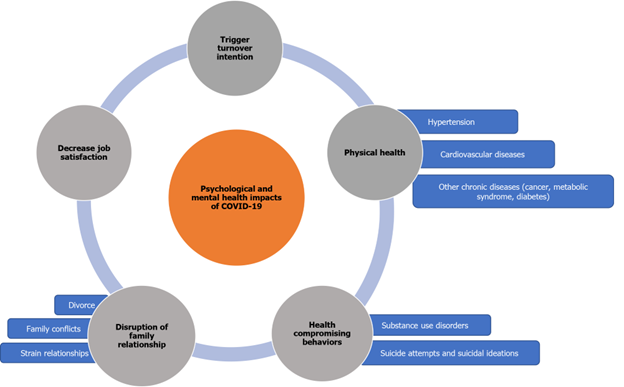
Figure 1: Psychological impact on employees after Covid-19
(Source: Posel et al., 2021)
The market condition worldwide may be described to be pitiful regarding the employee being relocated and thus forced to take up self-induced action to let companies provide opportunities. Although, there has been a certainly positive response in terms of the employment opportunities in the different corners of the world, where the increase in the job has been tremendously higher, in the retail sector where Unilever has most of its operations based (Nicola et al., 2020). The characteristics of the international market after the Covid-19 restrictions have eased to a certain degree is the support of the governmental bodies in terms of the provision of the financial aid and maintaining a consistent income as a provisionary system (Griffiths et al., 2021).
Evaluation of the direct effect of the characteristics of employment markets on talent management strategies and resourcing
Impact on talent management strategies
The talent management strategies are usually exercised to get the most skilled and the people to have a better model of working with all other different kinds of skill and create am efficacy in the organisation. The best methods that usually aid the employees to let the skills be utilised to the greatest organisational need had been deeply affected after the restrictions in the UK national market, where mostly the supply chain had been affected due to non-effective talent management strategies (van et al., 2020). The impact of the Covid-19 restrictions getting lifted may be said that the talent skill development process of Unilever is mostly described in the way of exchange of the different talent ideas in a virtual space. Unilever may be said to have the talent management strategies built on the digital innovation that has helped the organisation to achieve a certain growth propelling in the market. After the restrictions of Covid-19 had been released and lifted, the talent management strategies had been impacted negatively after Covid-19 restrictions relaxation (Azizi et al., 2021). The risks of no payment for working, and elimination of payments had affected the talent management strategy to a vast margin (Aguinis and Burgi, 2021).
Impact on resourcing
Unilever has redefined and reconsidered the resourcing skills to be sharpened and thus have a result of effective rate of functioning for the company is said to be crossing 9,000 employees. The resourcing strategy that Unilever had maintained in the post-Covid-19 world where most of the restrictions had been limited and dissolved, Unilever had made a commitment to the development of the skills in the age range from 15 to 24 age (Unilever. 2022). The national employment market in the UK may be referred for the impact to be considered as affecting Unilever in a more consolidated manner and is not different from the rest of the world or the initial employment market. The division is based on the national market of the UK may be said about the diminishing of the different employees on the field, where the company has made the resourcing system on the development of a new model. Resourcing mostly refers to the recruitment of the most skilled ones to survive in the market for the company, where the development of U-Renew had been the support program of Unilever (Unilever. 2022).
b) Critical analysis of theories related to talent management and resourcing and the effect of organisational objectives on employee turnover
Theories of talent management and resourcing strategy of employee turnover
Different theories have been applied by several organisations in the talent management strategy to further the application of the basic principles of talent management practices, and it thus pimples the organisational growth vastly. Employee turnover is one of the key elements in the system of organisational management, and the theory of compensation strategy is one of the ways in which excessive employee turnover may be reduced. The market positioning strategy may be defined in terms of the strategic development of the employee compensation, and thus it may be said that the comprehension strategy theory needs to be based on the matching of the employee skills and the compensation assigned. The monthly or the annual bonuses that may motivate the employees to function, is widely considered to be impacted by the compensation strategy theory, where the decompression in the compensations after the Covid-19 restraints had been found to be at 70% reduction with employee elimination of 21% (Vaccaro et al., 2020).
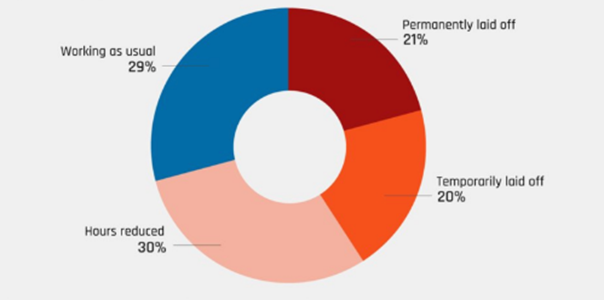
Figure 2: Statistics of work reduction after Covid-19 impact
(Source: Vaccaro et al., 2020)
The talent management model as a part of talent management may be said to consist of several steps that the organisational value may be increased and propagated through a sufficiently strong number of years. The steps in the theory of talent management model are the phase of planning the structure, creation of the talent management network by advertising, selection and training, which itself is a phase by phase process. The talent management theory has been extended further to suit the context of the international employment market, and thus the impact of the global consideration has been observed to impact the organisational guidelines quite effectively (Fernandes et al., 2022). The theory that may be quite effective in employee resourcing in the current context may be said as the theory of Resource Dependency Theory which creates the analysis of the ways that the organisation may attract and acquire a diversified talent from different kinds of diversified cultures. The Resource Dependency Theory usually has a close analysis of the expected way of the behavioural process that is being laid by the organisation and honestly focuses on the risk mitigation (Whatley et al., 2021).
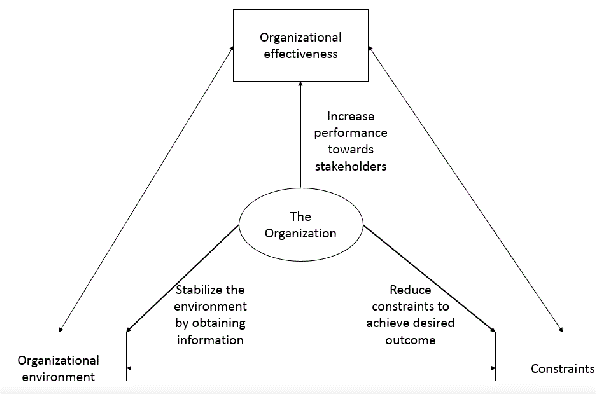
Figure 3: Resource dependency theory
(Source: Whatley et al., 2021)
Impact of talent management theories and resourcing strategy on organisational objective
The skill development system of Unilever in the overall marketplace has been impacted by the loss of jobs after the limitations of Covid-19 have been reduced, where Unilever has transformed the talent management system. Unilever had made the association with Flex Experiences, which has more than 60,000 people as a common mode of development of talent and created programs for exchange the information more crucially to form a better model of organisational fluency (Refer to Appendix 2). The unique program that Unilever has initiated in terms of the development of the work process has been greatly developed in the development and the restructuring of the human resource talents by the program of U-Renew (Unilever. 2022). The talent management may be described to have a better impact on the company’s functions in the future due to the fact that the company may get a better insight into the operation of the way to recruit the talented individuals and help to operate in multiple dimensions. The talent management theory has the space for letting Unilever build performance on a quite wide-scale and thus let the organisational talent recruiting pattern be improved, by letting the performance-oriented model be more highlighted. The resourcing system of Unilever may be described to be yet another distinguishable feature that Unilever had the market of recruitment and employee hiring be based on, where the Resource Dependency Theory is mostly focused on the enhancement of the organisational growth and the building of the career of the employees. On a specific note, the provision and educating of the workers about certain sets of works and creating the work demanding essential criteria of knowledge development and assisting around 10 million members have been the prime objective of Unilever. Resource Dependency Theory aims to build and improve the internal organisational structure, where the advocacy to the external situations and mitigating contingencies by the means of excellent knowledge possession has been the strategic goal of Unilever too.
Conclusion
The U-Renew program of Unilever often helps the organisation to have a more suitable employee development policy by following the talent management process meticulously. Additionally, the financial aid and the previous working climate of on-the-job knowledge make the program unique for Unilever, which has been the essence of the improvement in employee performance and innovation within the organisation.BUS7B35 Resourcing and Talent Management Assignment Sample
This essay has focussed on the talent management strategy and the resourcing strategies of Unilever after the limitations of the Covid-19 working situation have been abandoned by the international world and by the government of the UK. It may be concluded that the essay presents a discussion describing the past scenario and theoretical application of the models.
References
Aguinis, H. and Burgi-Tian, J., 2021. Talent management challenges during COVID-19 and beyond: Performance management to the rescue. BRQ Business Research Quarterly, 24(3), pp.233-240.
Azizi, M.R., Atlasi, R., Ziapour, A., Abbas, J. and Naemi, R., 2021. Innovative human resource management strategies during the COVID-19 pandemic: A systematic narrative review approach. Heliyon, 7(6), p.e07233.
Fernandes, C., Veiga, P.M., Lobo, C.A. and Raposo, M., 2022. Global talent management during the COVID‐19 pandemic? The Gods must be crazy!. Thunderbird International Business Review.
Griffiths, D., Sheehan, L., van Vreden, C., Petrie, D., Grant, G., Whiteford, P., Sim, M.R. and Collie, A., 2021. The impact of work loss on mental and physical health during the COVID-19 pandemic: baseline findings from a prospective cohort study. Journal of occupational rehabilitation, 31(3), pp.455-462.
Nicola, M., Alsafi, Z., Sohrabi, C., Kerwan, A., Al-Jabir, A., Iosifidis, C., Agha, M. and Agha, R., 2020. The socio-economic implications of the coronavirus pandemic (COVID-19): A review. International journal of surgery, 78, pp.185-193.
OECD. 2022. An assessment of the impact of COVID-19 on job and skills demand using online job vacancy data. [online] Available at: <https://www.oecd.org/coronavirus/policy-responses/an-assessment-of-the-impact-of-covid-19-on-job-and-skills-demand-using-online-job-vacancy-data-20fff09e/> [Accessed 5 May 2022].
Posel, D., Oyenubi, A. and Kollamparambil, U., 2021. Job loss and mental health during the COVID-19 lockdown: Evidence from South Africa. PloS one, 16(3), p.e0249352.
Tisdell, C.A., 2020. Economic, social and political issues raised by the COVID-19 pandemic. Economic analysis and policy, 68, pp.17-28.
Unilever. 2022. What’s in our products? | Unilever Global | Unilever global company website. [online] Available at: <https://www.unilever.com/brands/whats-in-our-products/> [Accessed 5 May 2022].
Vaccaro, A.R., Getz, C.L., Cohen, B.E., Cole, B.J. and Donnally III, C.J., 2020. Practice management during the COVID-19 pandemic. The Journal of the American Academy of Orthopaedic Surgeons.
van Hoek, R., Gibson, B. and Johnson, M., 2020. Talent management for a post‐COVID‐19 supply chain—The critical role for managers. Journal of Business Logistics.
Whatley, M. and Castiello-Gutiérrez, S., 2021. Balancing finances, politics, and public health: international student enrollment and reopening plans at US higher education institutions amid the COVID-19 pandemic. Higher education, pp.1-22.
Appendices
Appendix 1
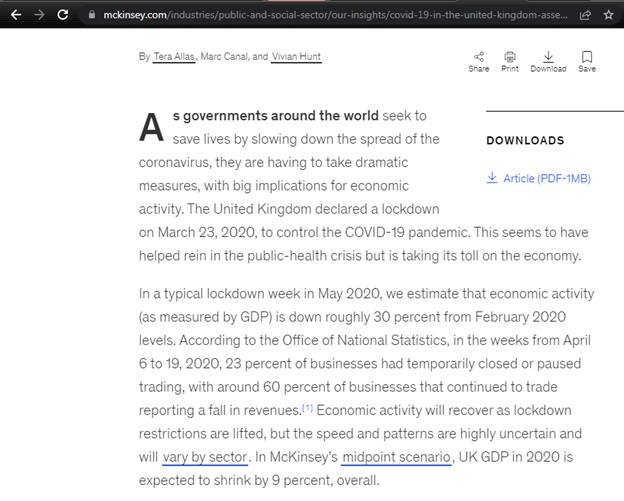
Appendix 2
https://www.linkedin.com/pulse/how-unilever-has-created-culture-internal-talent-mobility-david-green
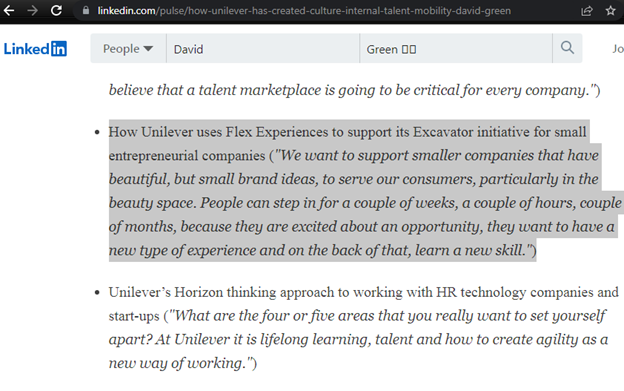
Assignment Services Unique Submission Offers:

